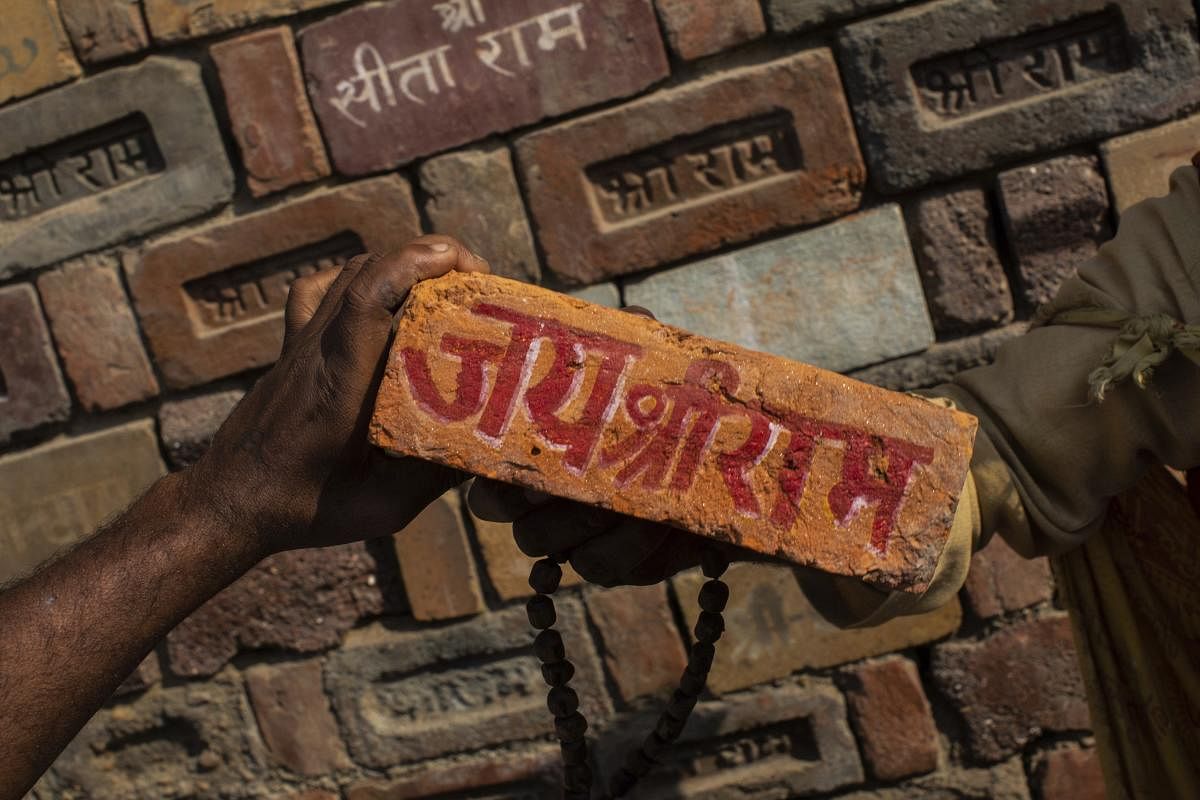
The Supreme Court on Saturday ruled in favour of Hindus who sought to build a Ram temple at the disputed site in Ayodhya as the birthplace of Lord Ram, saying the Muslims had offered no evidence to indicate that they had exclusive possession over the inner structure prior to 1857 since the date of its construction in the 16th century.
The top court, however, directed that the Muslim side, represented by Sunni Central Waqf Board, be given an alternate land of five acres in Ayodhya itself as their right to worship at the mosque was violated.
Noting that the dispute was over immovable property, the court said the title cannot be decided on the basis of faith or belief but on the basis of evidence. Passing the judgement in favour of the deity, the court concluded there was clear evidence to indicate that the worship by the Hindus in the outer courtyard continued unimpeded in spite of the setting up of a grill-brick wall in 1857.
“Their possession of the outer courtyard stands established. As regards the inner courtyard, there is evidence on a preponderance of probabilities to establish worship by the Hindus prior to the annexation of Oudh by the British in 1857,” it said.
Also read — Full text of Supreme Court's Ayodhya verdict
Chief Justice of India Ranjan Gogoi pronounced the unanimous judgment by a five-judge bench, also comprising Justices S A Bobde, D Y Chandrachud, Ashok Bhushan and S Abdul Nazeer in the seven-decade-old dispute involving two prominent communities of the country. The court acknowledged huge ramifications of the matter, saying it was entrusted with “an adjudicatory task of unique dimension”.
The court held that the suit, filed by 'Ram Lalla Virajman' (the deity of Lord Ram), was maintainable. It also passed the decree partly in favour of the Sunni Central Waqf Board by directing allotment of alternate land to the Muslims for the construction of a mosque and associated activities.
“The evidence in respect of the possessory claim of the Hindus to the composite whole of the disputed property stands on a better footing than the evidence adduced by the Muslims, the Muslims were dispossessed upon the desecration of the mosque on December 22-23 1949 which was ultimately destroyed on 6 December 1992. There was no abandonment of the mosque by the Muslims,” the bench said.
The court used its extra-ordinary power under Article 142 of the Constitution to remedy a wrong committed against the Muslims.
“It is necessary to provide restitution to the Muslim community for the unlawful destruction of their place of worship. We direct that land admeasuring 5 acres be allotted to the Sunni Central Waqf Board either by the central government out of the acquired land or by the government of Uttar Pradesh within the city of Ayodhya,” the bench said.
The court noted that during the pendency of the suits, the entire structure of the mosque was brought down in a calculated act of destroying a place of public worship. The Muslims have been wrongly deprived of a mosque which had been constructed well over 450 years ago, it said.
The court directed the Central government to frame a scheme under the Acquisition of Certain Area at Ayodhya Act, 1993 within three months wherein a trust would be formed to see the construction of the temple.
It shall make necessary provisions for the management of trust for construction of the temple under the Central government's law passed for the acquisition of over 67 acres of land.
The court dismissed the suit filed by Nirmohi Akhara for the management of the site.
The top court did not agree to the three-way bifurcation of the disputed site by the Allahabad High Court in 2010, by terming it “legally unsustainable”.
“Even as a matter of maintaining public peace and tranquility, the solution which commended itself to the High Court is not feasible. The disputed site admeasures all of 1500 square yards. Dividing the land will not subserve the interest of either of the parties or secure a lasting sense of peace and tranquility,” the court said.
